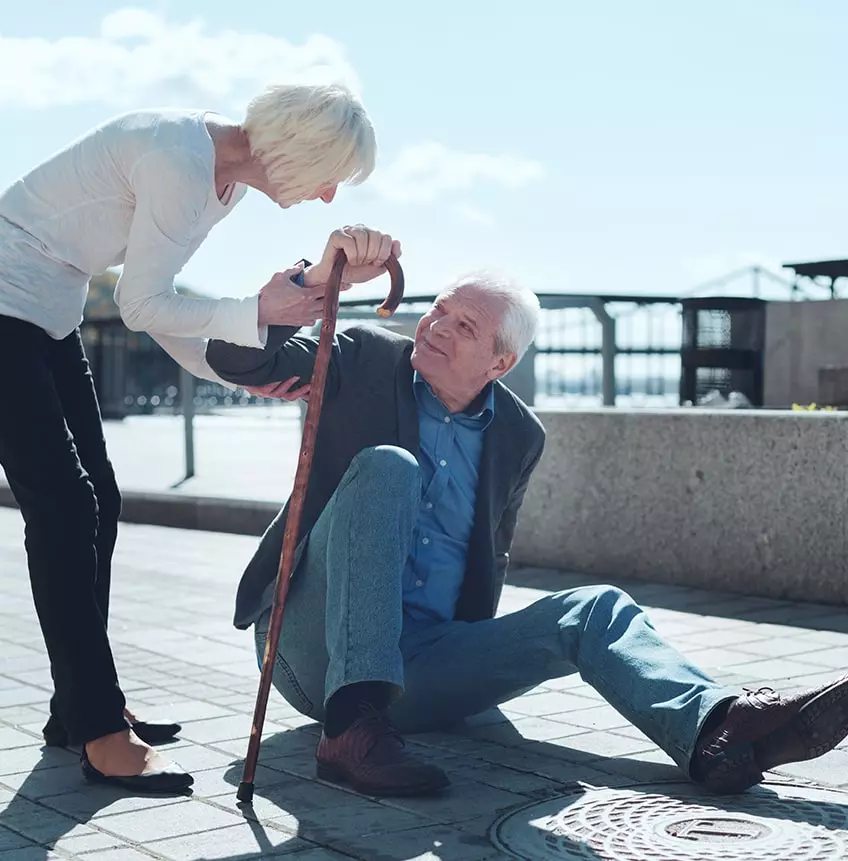
End-of-life care for seniors is a sensitive and critical aspect of healthcare. It revolves around providing comfort, support, and dignity to individuals as they approach the end of their lives. Palliative care, often referred to as end-of-life care, plays a vital role in ensuring that elderly individuals receive the care they need while respecting their preferences and values. In this article, we will delve into palliative care, the importance of end-of-life decision making, and how these aspects intersect to offer the best possible quality of life during this challenging phase.
Understanding palliative care
Find YOUR ideal care home NOW!
Palliative care is a multidisciplinary approach to care for individuals with serious illnesses, with the primary focus on enhancing the quality of life and reducing suffering. While it is often associated with end-of-life care, palliative care can be initiated at any stage of a serious illness. For seniors, palliative care provides physical, emotional, and spiritual support to help manage symptoms and provide comfort during their final years.
The importance of end-of-life decision making
End-of-life decision-making is a critical component of palliative care. Seniors, along with their families and healthcare providers, must engage in open and honest discussions about their preferences, values, and goals as they approach the end of their lives. Some key elements include:
-
Advance care planning: Seniors should consider creating advance directives, such as living wills and durable power of attorney for healthcare, to express their medical treatment preferences when they are no longer able to make decisions.
-
Goals of care discussions: Healthcare providers should engage in conversations about the seniors' goals for their care. This ensures that treatments and interventions align with the individual's values and preferences.
-
Hospice care consideration: When curative treatments are no longer viable or desired, hospice care, which provides specialized palliative care for the terminally ill, may be an appropriate choice. Hospice focuses on comfort and quality of life.
-
Family involvement: Involving family members in end-of-life discussions helps ensure that the patient's wishes are respected and that the family can cope with the emotional challenges ahead.
-
Emotional support: Emotional and psychological support is crucial for seniors and their families during this time. Grief counseling, spiritual guidance, and support groups can offer comfort and understanding.
The intersection of palliative care and end-of-life decision making
The intersection of palliative care and end-of-life decision making lies in providing care that is not only medically sound but also aligned with the patient's values and preferences. By openly discussing and documenting these decisions, healthcare providers can create a personalized care plan that respects the senior's autonomy.
Key Aspects of End-of-Life Decision Making
| Aspect | Purpose | Example |
|---|---|---|
| Advance Care Planning | Ensures medical preferences are documented | Living will, durable power of attorney |
| Goals of Care Discussions | Aligns medical treatments with patient’s values | Choosing comfort-focused care over aggressive treatments |
| Hospice Care Consideration | Provides specialized care for terminally ill patients | Transitioning from curative treatment to comfort care |
| Family Involvement | Ensures family understands and supports decisions | Discussing care preferences with loved ones |
| Emotional & Grief Support | Provides counseling and spiritual guidance | Grief support groups, religious services |
Palliative care and end-of-life decision making for seniors are deeply interconnected, focusing on enhancing the quality of life, relieving suffering, and respecting the individual's values and preferences as they approach the end of their lives. These aspects help seniors, their families, and healthcare providers navigate the challenges and emotions that come with end-of-life care while striving to provide comfort, dignity, and support during this crucial phase of life. Open communication, advance planning, and a compassionate approach are vital components of ensuring a peaceful and dignified end-of-life experience for seniors.
FAQ:
1. What is palliative care?
Palliative care is specialized medical care focused on improving the quality of life for individuals with serious illnesses by managing symptoms and providing emotional and spiritual support.
2. When should palliative care be introduced?
Palliative care can be introduced at any stage of a serious illness, not just at the end of life. It can be combined with curative treatments or used for comfort care.
3. How does palliative care differ from hospice care?
Palliative care is available at any stage of a serious illness, while hospice care is specifically for individuals who have a life expectancy of six months or less and have chosen comfort-focused care.
4. Why is end-of-life planning important?
End-of-life planning ensures that medical treatments align with the patient’s wishes, reduces the burden on family members, and provides dignity and comfort in the final stages of life.
5. What is an advance directive, and do I need one?
An advance directive is a legal document that outlines your medical treatment preferences in case you become unable to communicate them. It ensures that your care aligns with your values.
6. How can families support a loved one in palliative care?
Families can participate in care discussions, provide emotional support, respect the patient’s wishes, and seek counseling or support groups to manage their own grief and stress.
7. How can I find a care home with palliative care services?
We can help you find a care home that meets your needs. Contact us at 0230 608 0055 or fill out our form for assistance.
Need help finding a care home?
Senior Home Plus offers free personalized guidance to help you find a care facility that suits your health needs, budget, and preferred location in the UK.
Call us at 0203 608 0055 to get expert assistance today.
Do you need a care home for yourself or your loved one?
Search for Care Homes by Region
| East Midlands | Eastern | Isle of Man |
| London | North East | North West |
| Northern Ireland | Scotland | South East |
| South West | Wales | West Midlands |
| Yorkshire and the Humber |
Share this article :
Latest posts
You are looking for an establishment for your loved one ?
Get availability & prices
Fill in this form and receive
all the essential information
We would like to inform you of the existence of the opposition list for telephone canvassing.










